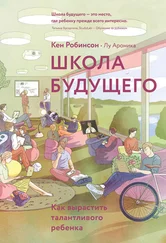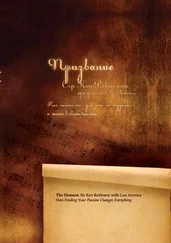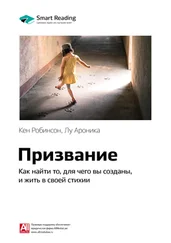Кен Робинсон - The Element
Здесь есть возможность читать онлайн «Кен Робинсон - The Element» весь текст электронной книги совершенно бесплатно (целиком полную версию без сокращений). В некоторых случаях можно слушать аудио, скачать через торрент в формате fb2 и присутствует краткое содержание. Год выпуска: 2009, ISBN: 2009, Издательство: Penguin Books Ltd, Жанр: Самосовершенствование, на английском языке. Описание произведения, (предисловие) а так же отзывы посетителей доступны на портале библиотеки ЛибКат.
- Название:The Element
- Автор:
- Издательство:Penguin Books Ltd
- Жанр:
- Год:2009
- ISBN:9780141911250
- Рейтинг книги:3 / 5. Голосов: 1
-
Избранное:Добавить в избранное
- Отзывы:
-
Ваша оценка:
- 60
- 1
- 2
- 3
- 4
- 5
The Element: краткое содержание, описание и аннотация
Предлагаем к чтению аннотацию, описание, краткое содержание или предисловие (зависит от того, что написал сам автор книги «The Element»). Если вы не нашли необходимую информацию о книге — напишите в комментариях, мы постараемся отыскать её.
The Element — читать онлайн бесплатно полную книгу (весь текст) целиком
Ниже представлен текст книги, разбитый по страницам. Система сохранения места последней прочитанной страницы, позволяет с удобством читать онлайн бесплатно книгу «The Element», без необходимости каждый раз заново искать на чём Вы остановились. Поставьте закладку, и сможете в любой момент перейти на страницу, на которой закончили чтение.
Интервал:
Закладка:
Where Is It?
Without the right opportunities, you may never know what your aptitudes are or how far they might take you. There aren’t many bronco riders in the Antarctic, or many pearl divers in the Sahara Desert. Aptitudes don’t necessarily become obvious unless there are opportunities to use them. The implication, of course, is that we may never discover our true Element. A lot depends on the opportunities we have, on the opportunities we create, and how and if we take them.
Being in your Element often means being connected with other people who share the same passions and have a common sense of commitment. In practice, this means actively seeking opportunities to explore your aptitude in different fields.
Often we need other people to help us recognize our real talents. Often we can help other people to discover theirs.
In this book, we will explore the primary components of the Element in detail. We will analyze the traits that people who have found the Element share, look at the circumstances and conditions that bring people closer to it, and identify the deterrents that make embracing the Element harder. We’ll meet people who have found their way, others who pave the way, organizations that lead the way, and institutions that are going the wrong way.
My goal with this book is to illuminate for you concepts that you might have sensed intuitively and to inspire you to find the Element for yourself and to help others to find it as well. What I hope you will find here is a new way of looking at your own potential and the potential of those around you.
CHAPTER TWO Think Differently
MICK FLEETWOOD is one of the most famous and accomplished rock drummers in the world. His band, Fleetwood Mac, has sold tens of millions of copies of their recordings, and rock critics consider their albums Fleetwood Mac and Rumours to be works of genius. Yet when he was in school, the numbers suggested that Mick Fleetwood lacked intelligence, at least by the definitions many of us have come to take for granted.
“I was a total void in academic work, and no one knew why,” he told me. “I had a learning disability at school and still do. I had no understanding of math at all. None. I’d be hard pushed right now to recite the alphabet backward. I’d be lucky if I got it right going forward quickly. If someone were to say, ‘What letter is before this one?’ I’d break out into a cold sweat.”
He attended a boarding school in England and found the experience deeply unsatisfying. “I had great friends, but I just wasn’t happy. I was aware of being squeezed out. I was suffering. I had no sense of what I was supposed to be because everything academic was a total failure, and I had no other reference points.”
Fortunately for Mick (and for anyone who later bought his albums or attended his concerts), he came from a home where his family saw beyond the limits of what they taught and tested in schools. His father was a fighter pilot in the Royal Air Force, but when he left the service, he followed his true passion for writing. He took his family to live on a barge on the river Thames in Kent for three years so he could follow this dream. Mick’s sister Sally went to London to become a sculptor, and his sister Susan pursued a career in the theater. In the Fleetwood household, everyone understood that brilliance came in many forms and that being poor at math, or unable to recite the alphabet backward, hardly doomed one to an inconsequential life.
And Mick could drum. “Playing the piano is probably a more impressive signal that there’s something creative going on,” he said. “I just wanted to beat the shit out of a drum or some cushions on the chair. It’s not exactly the highest form of creative signal. It’s almost, ‘Well, anyone can do that. That’s not clever.’ But I started doing this tapping business, and it turned out to be the make or break for me.”
Mick’s epiphany moment—the point at which the “tapping business” became the driving ambition in his life—came when he visited his sister in London as a boy and went to “some little place in Chelsea with this piano player. There were people playing what I now know was Miles Davis and smoking Gitanes cigarettes. I’d watch them and saw the beginnings of this other world and the atmosphere sucked me in. I felt comfortable. I wasn’t fettered. That was my dream.
“Back at school, I held on to these images and I dreamt my way out of that world. I didn’t even know if I could play with people, but that vision got me out of the morass of this academic bloody nightmare. I had a lot of commitment internally, but I was also incredibly unhappy because everything at school was showing me that I was useless according to the status quo.”
Mick’s school performance continued to confound his teachers. They knew he was bright, but his scores suggested otherwise. And if the scores said otherwise, there was little they could do. The experience proved extremely frustrating for the boy who dreamed of being a drummer. Finally, in his teens, he’d had enough.
“One day, I walked out of school and I sat under a large tree in the grounds. I’m not religious, but with tears pouring down my face, I prayed to God that I wouldn’t be in this place anymore. I wanted to be in London and play in a jazz club. It was totally naive and ridiculous, but I made a firm commitment to myself that I was going to be a drummer.”
Mick’s parents understood that school was not a place for someone with Mick’s kind of intelligence. At sixteen, he approached them about leaving school, and rather than insisting that he press on until graduation, they put him on a train to London with a drum kit and allowed him to pursue his inspiration.
What came next was a series of “breaks” that might never have occurred if Mick had stayed in school. While he was practicing drums in a garage, Mick’s neighbor, a keyboard player named Peter Bardens, knocked on his door. Mick thought Bardens was coming to tell him to be quiet, but instead, the musician invited him to play with him at a gig at a local youth club. This led Mick into the heart of the London music scene in the early 1960s. “As a kid, I had no sense of accomplishment. Now I was starting to get markers that it was okay to be who I was and to do what I was doing.”
His friend Peter Green proposed him as the replacement for the drummer in John Mayall’s Bluesbreakers, a band that, at various times, included Eric Clapton, Jack Bruce of Cream, and Mick Taylor of the Rolling Stones. Later, he joined with Green and another Bluesbreakers alumnus, John McVie, to form Fleetwood Mac. The rest is a history of multiplatinum recordings and sold‐out stadiums. But even as one of the most famous drummers in the world, Mick’s analysis of his talent still bears the marks of his experiences in school.
“My style has no structured math to it. I would go into a complete petrified mess on the floor if someone said, ‘Do you know what a four/eight is?’ Musicians that I work with know that I’m actually like a kid. They might say, ‘You know in the chorus, in the second beat…,’ and I’ll say, ‘No,’ because I don’t know what a chorus is from a verse. I can recognize it if you play the song, because I’ll listen to the words.”
For Mick Fleetwood, getting away from school and the tests that judged only a narrow range of intelligence was the path to a hugely successful career. “My parents saw that the light in this funny little creature certainly wasn’t academics.” It happened because he understood innately that he had a great aptitude for something that a score on a test could never indicate. It happened because he chose not to accept that he was “useless according to the status quo.”
Читать дальшеИнтервал:
Закладка:
Похожие книги на «The Element»
Представляем Вашему вниманию похожие книги на «The Element» списком для выбора. Мы отобрали схожую по названию и смыслу литературу в надежде предоставить читателям больше вариантов отыскать новые, интересные, ещё непрочитанные произведения.
Обсуждение, отзывы о книге «The Element» и просто собственные мнения читателей. Оставьте ваши комментарии, напишите, что Вы думаете о произведении, его смысле или главных героях. Укажите что конкретно понравилось, а что нет, и почему Вы так считаете.












